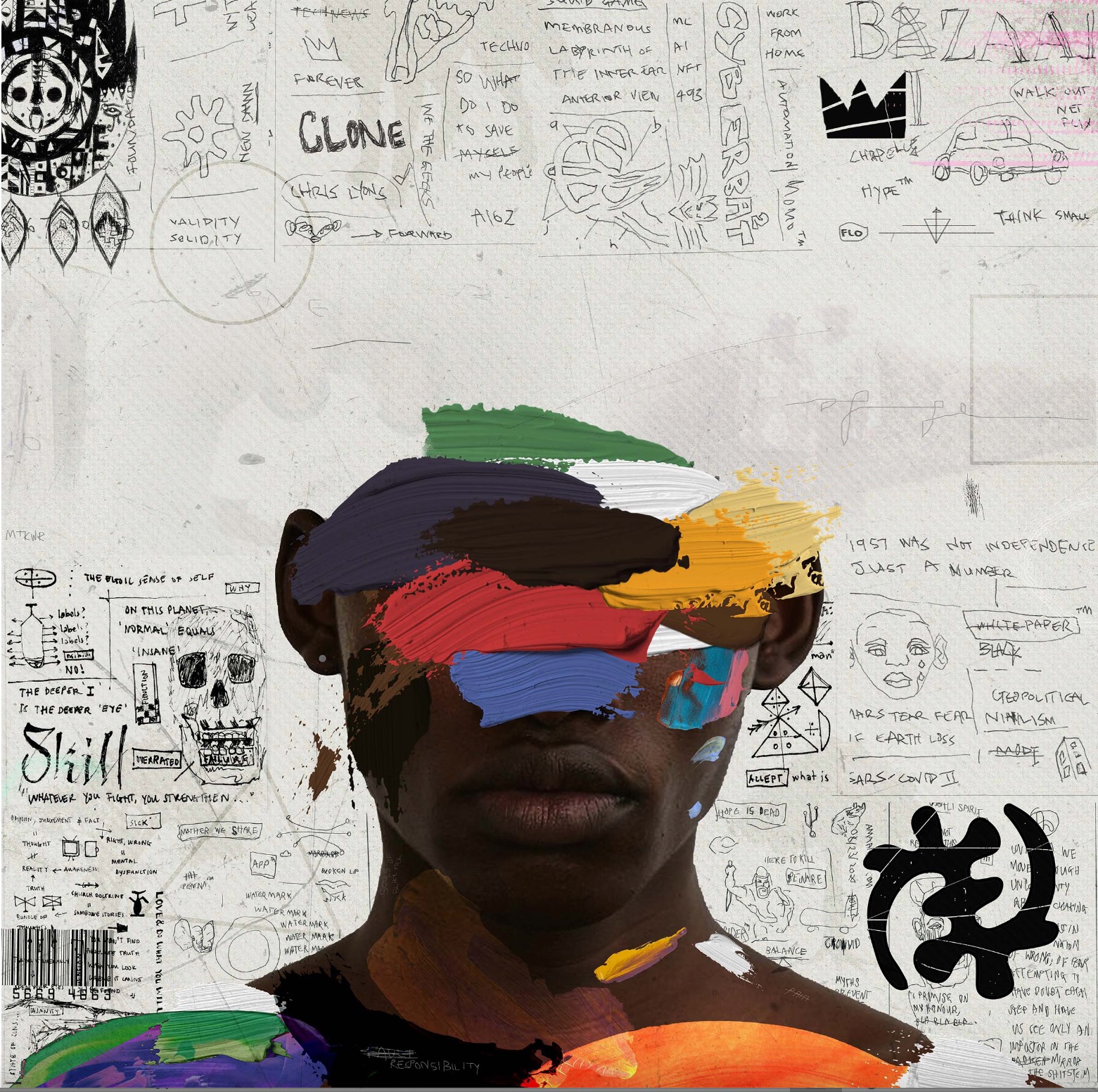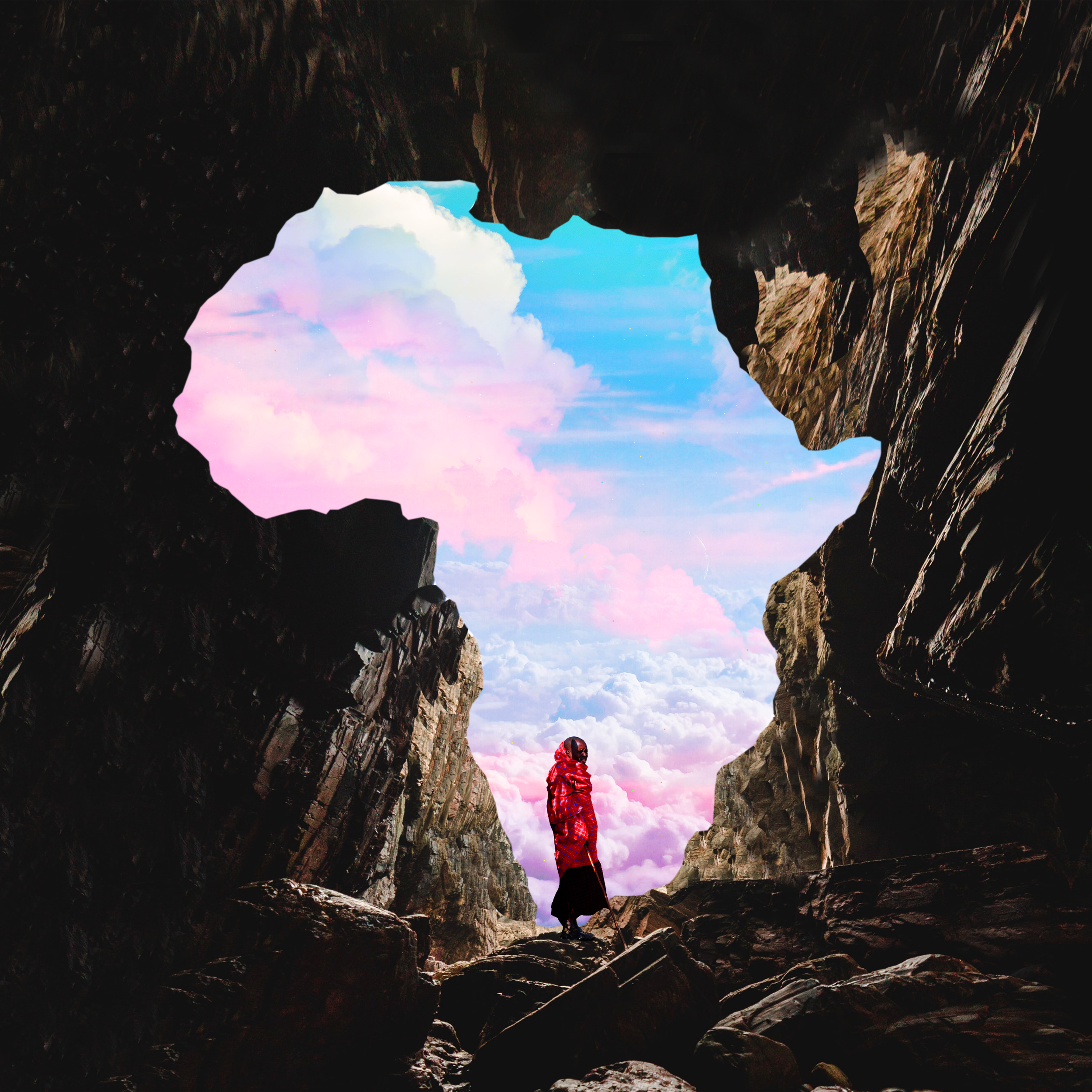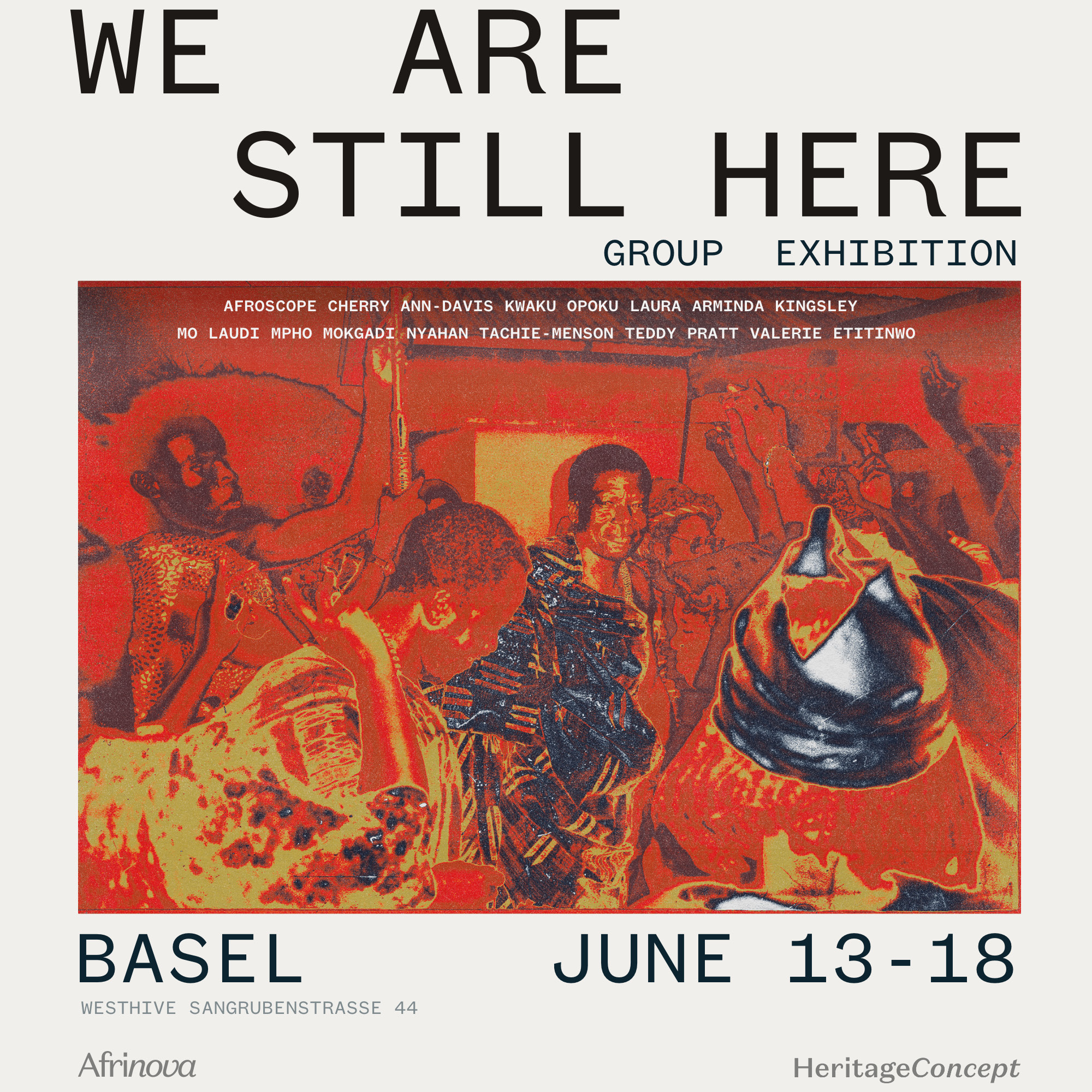ARTISTS
MO LAUDI
J
MPHO
MOKGADI
MOKGADI
NYAHAN
TACHIE-MENSON
TACHIE-MENSON
TEDDY
PRATT
PRATT
VALERIE
ETITINWO
ETITINWO
INTRODUCTION
How are we looking at our pasts to better understand our present moment to influence our futures? In a not-so-abstract way, we see our heritage as a key to unlocking a more informed future. This way, we activate our heritage as a pathway to new perspectives of self and form vital solutions to unlearning false narratives of who we are.
By tapping into our heritage, we are collectively offering ourselves an opportunity to redirect our gaze to look within and build new pools of knowledge curated by us through us.
This knowledge bears witness to stories that came before and continues to live through us. In this present intersection of mixed realities, We Are Still Here reflects on what it means to be custodians of heritage. What kind of world emerges when people tap into a new era of creation outside of “validated systems?”
We Are Still Here provides cues and tools for self-excavation already embedded within different communities across the globe – Tools that turn us into anthropological archeologists who need not go far to excavate the value stored within. It’s an acknowledgment that our bodies of knowledge serve as sites of memory that hold heritage.
By tapping into our heritage, we are collectively offering ourselves an opportunity to redirect our gaze to look within and build new pools of knowledge curated by us through us.
This knowledge bears witness to stories that came before and continues to live through us. In this present intersection of mixed realities, We Are Still Here reflects on what it means to be custodians of heritage. What kind of world emerges when people tap into a new era of creation outside of “validated systems?”
We Are Still Here provides cues and tools for self-excavation already embedded within different communities across the globe – Tools that turn us into anthropological archeologists who need not go far to excavate the value stored within. It’s an acknowledgment that our bodies of knowledge serve as sites of memory that hold heritage.
AFROSCOPE
Afroscope [Nana Isaac Akwasi Opoku] is an artist and designer from Tema, Ghana who makes art that is often rooted in a diversity of Afrikan world views and cosmogonies.
The Yoruba concept of Ashè, the Nguni Bantu philosophy of Ubuntu and the Akan Adinkra symbology are some examples of his early, enduring influences.His work typically exudes strong surrealist leanings with afrofuturist undertones, as it asks and responds to questions such as:
Who could we become if we remembered who we were?
Where could we go if we remembered where we came from?
What alternate realities and futures could we create if we knew our various pasts?
The genesis of his formal art practice largely coincides with the peak of his disillusionment with colonially programmed norms, particularly within the spheres of education, religion, nutrition society and selfhood. Thus, art-making has become a way for Nana to investigate and synthesize the alternative modes of being he continues to encounter on his ongoing journey to ‘decolonize imagination’.
In essence, his work currently attempts to deconstruct normative reality and challenge popular tropes about Afrika(ns) by imagining transcendental visual narratives that usually comprise otherworldly beings, speculative dreamscapes and peculiar forms.
The Yoruba concept of Ashè, the Nguni Bantu philosophy of Ubuntu and the Akan Adinkra symbology are some examples of his early, enduring influences.His work typically exudes strong surrealist leanings with afrofuturist undertones, as it asks and responds to questions such as:
Who could we become if we remembered who we were?
Where could we go if we remembered where we came from?
What alternate realities and futures could we create if we knew our various pasts?
The genesis of his formal art practice largely coincides with the peak of his disillusionment with colonially programmed norms, particularly within the spheres of education, religion, nutrition society and selfhood. Thus, art-making has become a way for Nana to investigate and synthesize the alternative modes of being he continues to encounter on his ongoing journey to ‘decolonize imagination’.
In essence, his work currently attempts to deconstruct normative reality and challenge popular tropes about Afrika(ns) by imagining transcendental visual narratives that usually comprise otherworldly beings, speculative dreamscapes and peculiar forms.


